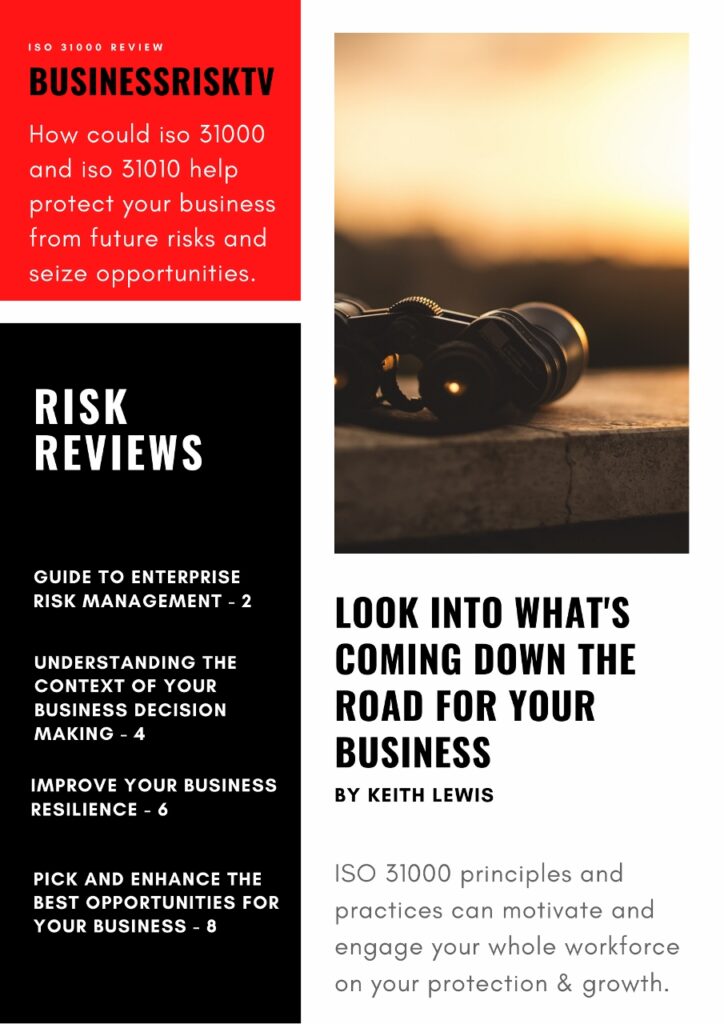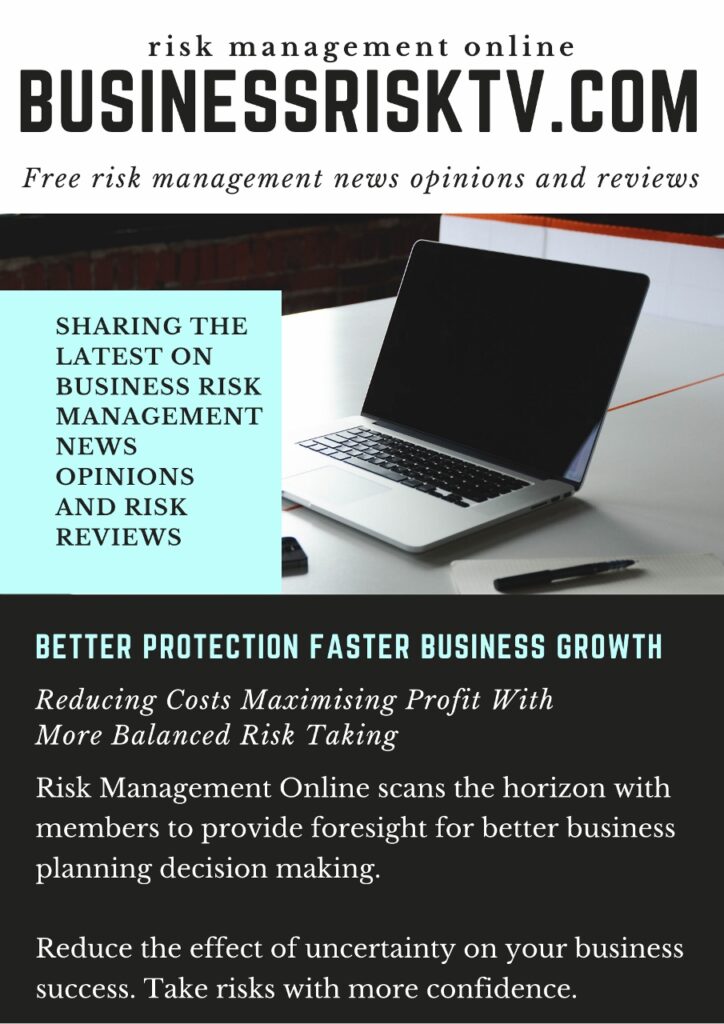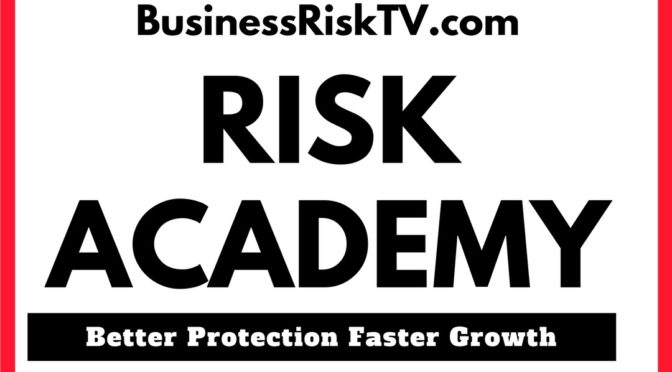BusinessRiskTV Business Risk Academy Risk Management Process Workshops including iso 31000 guide to enterprise risk management training and consulting
Need to develop your iso 31000 enterprise risk management skills? Pick up iso31000 risk management knowledge. Tap into our iso31000 guide to enterprise risk management. Our ERM guide to improve your business risk strategy and business performance. Tap into our global risk insights.

The enterprise risk management process includes risk identification risk evaluation and taking appropriate action to manage risk exposure.
Appropriate risk exposure management could include tolerating the risk as a necessary part of doing business. Alternatively you may decide to treat the risk or transfer it to other party or entity. Lastly your risk appetite or risk tolerance may necessitate terminating the enterprise activity due to the type size and likelihood of the risk event happening.

Whatever you decide is appropriate action for your enterprise it is important to adequately resource the risk controls you settle upon.
The risk controls you put into action may not be enough. Maybe they were enough in terms of your assessment of the risk but the risk event still happens. Your risk assessment process needs to incorporate reaction planning to risk events or changing risk information or changing risk tolerance.
Quality reporting and monitoring of your risk management performance is essential to keep your risk exposure aligned with your business objectives changing external risk events and other external changes including regulatory changes.
You will need to review your risk management process periodically to ensure it still works well for your business objectives.
BusinessRiskTV runs online Risk Management Process workshops to assist senior managers and executives to design embed and review risk management processes. Subscribe to follow BusinessRiskTV updates and highlights.
ISO 31000 and ISO 31010 Risk Management
Unlock the Power of ISO 31000 and ISO 31010: A Proven Method for Improving Business Performance
ISO 31000 and ISO 31010 are international standards that provide guidance on risk management. These standards outline principles, practices, and methodology that can be used by business leaders to better manage enterprise risks.
ISO 31000 provides a framework for managing risks in organisations. It outlines a risk management process that includes the following steps:
- Establishing the context: This step involves identifying the scope of the risk management process and determining the objectives and criteria for risk assessment.
- Identifying risks: This step involves identifying potential risks that could impact the organisation’s objectives.
- Analysing risks: This step involves evaluating the likelihood and impact of identified risks.
- Evaluating risks: This step involves comparing the risks identified in the previous step to the organisation’s risk criteria and determining the level of risk.
- Treating risks: This step involves implementing measures to reduce or eliminate identified risks.
- Monitoring and reviewing: This step involves monitoring and reviewing the effectiveness of risk management actions and making changes as necessary.
ISO 31010 provides guidance on risk assessment techniques and tools that can be used in the risk management process. These techniques and tools can be used to identify, analyse, and evaluate risks.
By using the principles, practices, and methodology outlined in ISO 31000 and ISO 31010, business leaders can better manage enterprise risks. This can help organisations achieve their objectives and improve overall performance.
Some of the key benefits of using these standards include:
- Improved decision-making: By using a structured risk management process, business leaders can make more informed decisions.
- Increased efficiency: By identifying and managing risks proactively, organisations can reduce the likelihood of negative events occurring and improve overall efficiency.
- Enhanced reputation: By demonstrating a commitment to risk management, organisations can improve their reputation and build trust with stakeholders.
In conclusion, ISO 31000 and ISO 31010 provide a comprehensive framework for managing risks in organisations. By using the principles, practices, and methodology outlined in these standards, business leaders can better manage enterprise risks and improve overall performance.
Subscribe for free alerts to upcoming ISO31000 and ISO31010 management workshops

Sign up for online virtual risk management training courses or find out about inclassroom course near you.

| Marketplaces | Exhibitions |
| Save Money | Risk Magazine |
#BusinessRiskTV #iso31000 #iso31000guide #iso31000training #EnterpriseRiskManagement #Leadership #RiskManagement #LeadershipDeveloment #GlobalRiskInsights
Enterprise Risk Management Process BusinessRiskTV ISO31000 ERM Guide

Business Risk Management Club